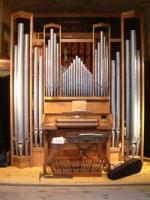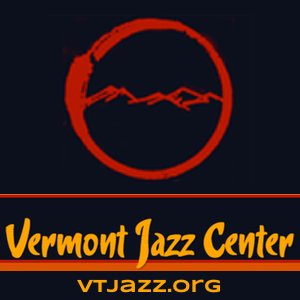Guilford, Vt. — Friends of Music at Guilford (FOMAG) presents its 6th annual Spring Organ Recital at 3:00 p.m. on Sunday, M ay 25, in the Organ Barn at idyllic Tree Frog Farm in the Guilford countryside. For this Memorial Day Weekend recital, Ken Olsson has chosen a singularly appropriate program: music by 19th-century Americans. Not only does it suit this national holiday; it also reflects FOMAG’s continuing interest in American composers, most specifically those associated with New England. And it suits the organization’s Guilford Chamber Organ, with a console dating back to the late 19th century, when it was installed in a church in Maine.
ay 25, in the Organ Barn at idyllic Tree Frog Farm in the Guilford countryside. For this Memorial Day Weekend recital, Ken Olsson has chosen a singularly appropriate program: music by 19th-century Americans. Not only does it suit this national holiday; it also reflects FOMAG’s continuing interest in American composers, most specifically those associated with New England. And it suits the organization’s Guilford Chamber Organ, with a console dating back to the late 19th century, when it was installed in a church in Maine.
There were organs in America as far back as the early colonial era, but not many; the Puritan tradition frowned on instrumental music in church services. Still, by 1800, Boston boasted eight church organs, New York and Philadelphia five or six, and many other cities throughout the colonies claimed at least one. Wealthy private households had organs, too. Early instruments were imported, but by the mid-18th century the emerging nation had developed an organ-building industry. There wasn’t much published organ music, since church organists mostly accompanied hymns; interludes were improvised. Organ music for concert use was virtually unknown until decades later.
Ken Olsson’s chosen composers are key figures in the history of American music. Connecticut-born Dudley Buck (1839-1909), one of the first significant American organists, studied in Europe in the 1850s, opened a teaching studio in Hartford in 1867, and in 1869 moved to Chicago. The great Chicago fire destroyed his church, his studio, and his musical library. He moved to Boston, then New York and Brooklyn. His Variations on “The Star-Spangled Banner” reflect the exuberant patriotism of the young nation before the Civil War. W. Eugene Thayer (1838-1889) also studied abroad and taught in Boston and New York. He edited journals for organists, published a comprehensive course of organ study, composed prolifically, and performed frequently as a recitalist.
The next four composers represent the so-called “New England School” at the turn of the 20th century. Horatio Parker (1863-1919) was one of the most admired American composers of his time, especially for his choral works. As professor of music at Yale, he taught the young Charles Ives, who bridled at Parker’s academic strictures. George E. Whiting (1840-1923) founded the Beethoven Society in Hartford, Ct., when he was just fifteen years old, studied with organ masters in New York and Europe, served churches in Albany and Boston, and for a time was head of the organ department at New England Conservatory.
George Whitefield Chadwick (1854-1931) was influenced by the “Realist” movement in the arts; his works show the beginnings of a style we can recognize as distinctly American, often drawing on folk sources and indigenous subject matter. Arthur Foote (1853-1937) became organist at First Church in Boston in 1878 and stayed there for 32 years. A founder of the American Guild of Organists, he was the first major American composer to be trained entirely in the U.S. His style, though, is largely European-influenced Romanticism, akin to Wagner and Brahms. He is best-known today for his chamber works. FOMAG has previously performed his “Night Piece” for flute and strings and Suite in E Major for string orchestra at Labor Day Weekend festivals.
Come celebrate the holiday with fine organ music you’ve probably never heard from our own heritage, and enjoy a traditional barbecue feast before heading away—well fed and with the whole evening ahead of you. Tree Frog Farm is on Kopkind Dr., off Packer Corners Rd. in Guilford, about 9 miles from the Guilford Country Store. Take Guilford Center Rd. from Rt. 5 South at the store and follow signs to the Barn, or if you’re coming from Bernardston, Mass., along Rt. 5, turn into Keets Brook Rd. and follow signs from there.
Tickets for this event are $15 for the concert and $10 for the optional barbecue. It’s helpful to have an idea how many folks are coming, for food-planning purposes, so contact the Friends of Music office for reservations: (802) 254-3600 or office@fomag.org.




Beautiful instrument
It’s really a gorgeous organ, too, in a unique space. Well worth seeing in action.